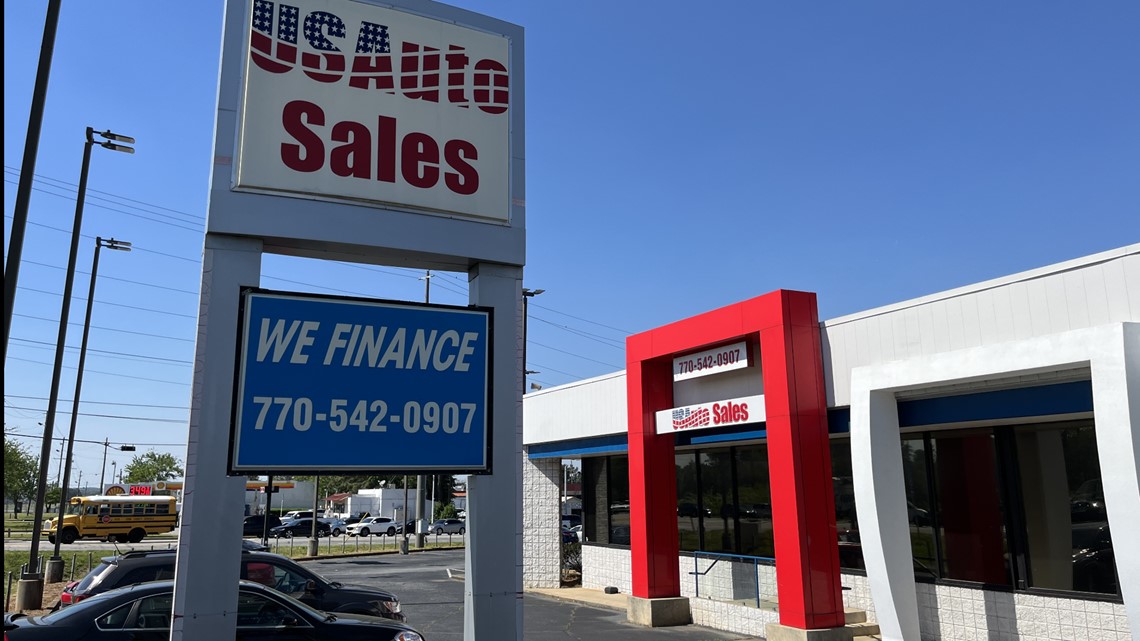Is the end nigh?
- Thread starter Gomez Adams
- Start date
You are using an out of date browser. It may not display this or other websites correctly.
You should upgrade or use an alternative browser.
You should upgrade or use an alternative browser.
I've been talking about this for quite a while:
Banks in this country, and globally, are in big, big trouble. Crypto isn't the half of their problems.
From Dallas and Minneapolis to New York and Los Angeles, offices sit vacant or underused, showing the staying power of the work-from-home era. But clear desks and quiet break rooms aren’t just a headache for bosses eager to gather teams in person.
Investors and regulators, on high alert for signs of trouble in the financial system following recent bank failures, are now homing in on the downturn in the $20 trillion US commercial real estate market.
Just as lenders to the sector grapple with turmoil triggered by rapidly rising interest rates, the value of buildings such as offices is crashing. That could add to pain for banks and raises concerns about damaging ripple effects.
This is a huge part of why bosses have been trying to force people back into the office: they're paying top rents on office space and nobody is in it. People not coming back to the office is making companies simply stop paying the bills and/or not renewing leases and downsizing dramatically.Banks in this country, and globally, are in big, big trouble. Crypto isn't the half of their problems.
Wait until the cities start to realize real tax losses from unoccupied offices.

Tupperware's party is over | Boing Boing
I remember my mother attending Tupperware parties in the late 1970s and early 1980s. She’d come back with those plastic storage containers that were frequently microwave safe and that amazing…
It also warned that it had to renegotiate its loans after already amending its loan agreements three times since August 2022.
Tupperware said it was struggling with higher interest costs on its borrowings while it attempts to turn the business around.
The company said it "currently forecasts that it may not have adequate liquidity in the near term", adding that it "has therefore concluded that there is substantial doubt about its ability to continue as a going concern".
Farewell Bed Bath & Beyond.
After a tumultuous struggle to stay in business over the past several years, Bed Bath & Beyond declared bankruptcy on Sunday. That means your stash of its 20%-off coupons are about to be useless.
Bed Bath & Beyond said it would sell off its merchandise and then go out of business.
But where, oh where, shall I now find my three minute egg time shaped like an egg?
Oh Woe-R-Me.
Oh Woe-R-Me.
This is a bigger story than meets the eye:

 www.11alive.com
www.11alive.com
People are walking away from their ridiculously high priced used car loans the same way they walked away from their ridiculously high mortgages in 2009.
And with property values starting to fall, it's only a matter of time before they start walking away from ridiculously overpriced real estate too.

Employees of US Auto Sales shocked when asked to leave work as dealerships abruptly close in Southeast
An email sent out Monday asked employees to finish what they were working on, clock out and leave the facility.
"They take on a lot of leverage they're after very high rates of return that they've promised to their investors. So, they've taken on a lot of leverage and take on a lot of risk. This is by design," Ganduri explained.
Ganduri said the used car industry has taken a hit since the pandemic.
"The used car prices have gone down quite a bit and also they ended up making loans that were much more than the actual value was," he explained.
He gave an example to help understand how it works.
"On an average, the car was worth $13,000 and they the average loan was in fact was $20,000. Okay, so you're lending out $7,000 or $6,000 more than what the car is worth. And that portion of it is in some ways uncollateralized unsecured debt. And so when someone defaults, that portion of $6,000, $7,000 is gone in the sense that there is no recourse, there's no collateral backing that."
They ALL did that. Carvana, Car Max, Auto Nation, etc. People are walking away from their ridiculously high priced used car loans the same way they walked away from their ridiculously high mortgages in 2009.
And with property values starting to fall, it's only a matter of time before they start walking away from ridiculously overpriced real estate too.
And right behind Bed, Bath and Beyond goes the largest wedding company in the United States, David's Bridal:

 www.cbsnews.com
www.cbsnews.com

David's Bridal declares bankruptcy, will lay off more than 9,000 workers
Wedding dress retailer cites "post-COVID environment and uncertain economic conditions," saying it's looking for a buyer.
David's Bridal filed for bankruptcy on Monday just days after announcing plans to lay off more than 9,000 workers nationwide later this year.
The popular wedding dress retailer said its stores and e-commerce website will remain open during the financial restructuring process. David's Bridal executives said they are trying to arrange a sale of the company. The Pennsylvania-based company, which filed for Chapter 11 bankruptcy protection, has $257 million in debt, according to court documents.

